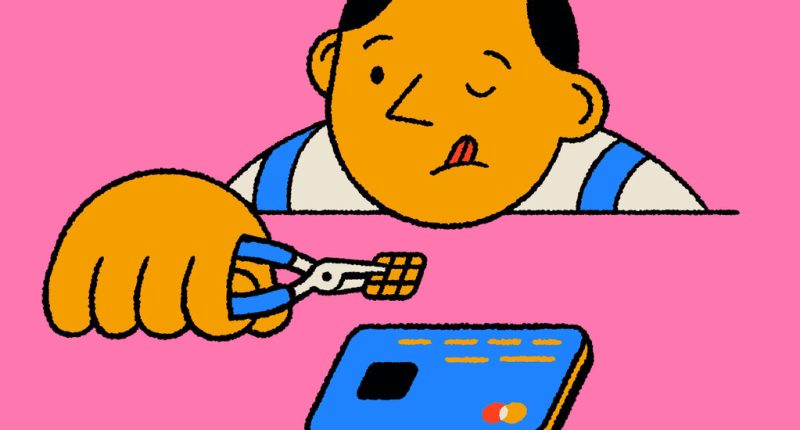
Anyone whose credit score has been marred by late payments or financial stumbles can understand the allure of a quick fix that scrubs tarnished credit. But beware the companies that sell credit “repair” services over the phone and charge fees upfront.
The Consumer Financial Protection Bureau reached a $2.7 billion settlement in August with PGX Holdings, a group of companies, including Progrexion Marketing, that ran a large credit repair operation under brands like Lexington Law and CreditRepair.com.
Credit repair companies typically bombard credit bureaus with dispute letters in the hope of getting negative marks deleted, said Andrew Pizor, a senior attorney at the National Consumer Law Center. (The bureaus can ignore disputes that don’t come directly from consumers, he said.) Occasionally, the repair companies’ efforts may work, Mr. Pizor said, but any benefit is often temporary. If you’ve stopped repaying a loan, that information will reappear on your report when the lender sends an update to the credit bureau.
If the negative information is accurate, there’s generally no way to have it erased, Mr. Pizor said. Negative information like missed or late payments remains on your credit report for seven years, he said, and a personal bankruptcy stays there for 10 years. Paying for credit repair, he said, is “really a waste of money for the vast majority of people.”
Consumers have the right to dispute mistakes on their credit reports and to have the errors corrected promptly — though it can sometimes be frustrating. “Our view is that people shouldn’t need to pay a third party,” said Jonah Kaplan, senior program manager of consumer reporting markets at the consumer bureau. “They can do it for themselves for free.”
The consumer bureau’s settlement stems from a lawsuit that the bureau filed in Federal District Court in Utah, claiming that the companies collected illegal upfront fees for credit repair services sold via telemarketing in violation of federal law. Credit repair companies can’t ask for or receive fees until six months after they have achieved results for the customer, the bureau said. In March, the court ruled in the bureau’s favor.
It’s uncertain how much money consumers will see from the settlement. PGX Holdings filed for bankruptcy protection in June. The consumer bureau, in a statement about the settlement, said the victims’ relief fund at the agency could possibly be used to make payments “to those harmed by the perpetrators.”
As part of the settlement, the companies were barred from telemarketing credit repair services for 10 years and must notify customers of the settlement and explain the process for canceling the service.
Eric M. Kamerath, a spokesman for PGX Holdings, said the company “will continue to comply with the court’s ruling while helping consumers who would otherwise live with inaccurate and unsubstantiated credit reports.”
The settlement is the latest salvo in the bureau’s crackdown on credit repair outfits. In a statement, its director, Rohit Chopra, called credit repair companies a “scam.” The Federal Trade Commission has also taken action recently against them.
As delinquencies on credit card debt have risen to prepandemic levels, the National Foundation for Credit Counseling has seen a “steady increase” in demand for credit counseling services since the spring of 2022, said Bruce McClary, a spokesman for the foundation. According to reports from its member agencies, he said, both counseling activity and enrollment in debt-management plans have returned to prepandemic levels.
Some background: The three major credit bureaus — Equifax, Experian and TransUnion — compile details about your payment history into credit reports. They provide the reports to banks, lenders and other companies, which use them to decide if you’re a good credit risk. If you fall behind or stop paying a debt, that shows up on your reports and hurts your credit score — a three-digit summary of your credit record — making it harder to qualify for new loans at favorable rates.
If you’re having trouble repaying your debt and your credit is suffering, one alternative is to seek advice from a nonprofit consumer credit counseling agency, Mr. Pizor of the National Consumer Law Center said. Such groups can assess your financial situation and, if you qualify, arrange for a debt management plan, which will allow you to pay off your debts over time, typically in three to five years. Some agencies may charge a fee, which is offset by a lower interest rate negotiated by the agency.
Research on borrowers who took advantage of payment pauses from their credit card companies during the pandemic and then enrolled in nonprofit debt-management plans were significantly less likely to default than similar borrowers who did not participate in such plans, said David Silberman, a senior fellow at the Center for Responsible Lending.
But he said consumers should be skeptical of debt “settlement” companies because they typically encouraged consumers to stop paying their lenders. Instead, borrowers send money to the settlement company, which aims to use the funds to prod the lender into settling by accepting less money than is owed. (The company takes a cut.)
But if the effort isn’t successful, customers can end up with poorer credit than when they started, Mr. Silberman said. “They’ve dug a deeper hole,” he added.
If a credit counseling firm doesn’t think you earn enough to pay off your debts in a reasonable amount of time, personal bankruptcy — a legal proceeding for getting relief from debts you can’t pay — may be an option. That is a serious step, however, because it may be difficult to gain access to credit for years afterward.
Here are some questions and answers about managing debt:
How can I find a reputable credit counseling agency?
You can search online at the National Foundation for Credit Counseling. Also, the Justice Department maintains a list of agencies that are approved to provide pre-bankruptcy counseling. These groups often offer other services, including credit counseling and debt-management plans.
Are there credit cards and loans that can help bolster my credit?
Some banks and credit unions offer secured credit cards, which allow users to make a refundable cash deposit — usually a few hundred dollars — that serves as collateral for purchases made with the card. Eventually, cardholders can build a repayment record that improves their credit score, allowing them to advance to a traditional card with a higher borrowing limit. Discover and Amazon are also among those offering secured cards.
Another option may be a “credit builder” loan, offered by community banks as well as online lenders. With credit builder loans, the lender typically deposits your money into a separate savings account. You get the money — usually minus a fee — after you make monthly installments equal to the original amount.
What’s the best way to protect my credit score?
Paying bills on time and keeping your use of credit low — meaning not maxing out your cards — can help maintain a good score. You should also check your credit reports for errors. You can get reports free from the big bureaus — as often as weekly through the end of this year — at a special website, www.annualcreditreport.com.
Source: | This article originally belongs to Nytimes.com








